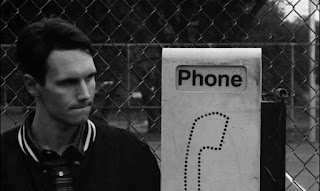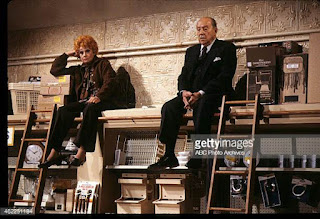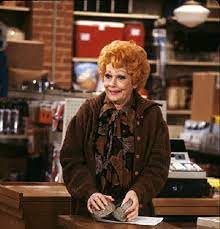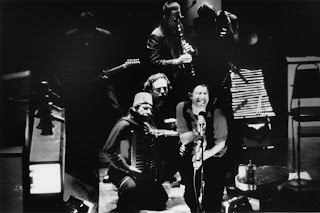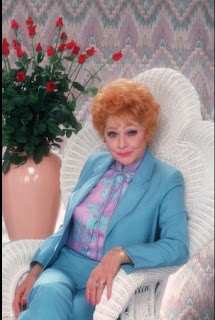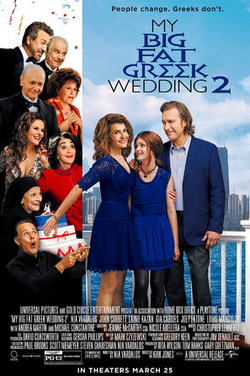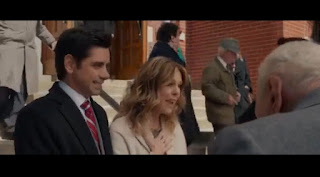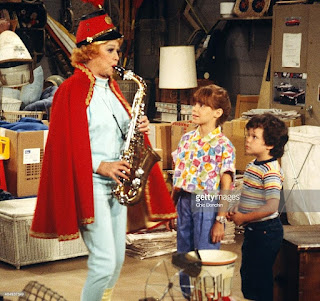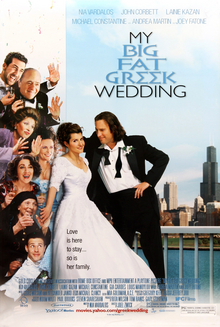Joy Ride is the worst film of 2023.
I said that about Book Club: The Next Chapter. I came close to saying that about The Boogeyman. However, Joy Ride outdoes them all in its crassness, its degeneracy, its racism. Joy Ride is not funny, not clever, and a horrifying reflection of a society that can give lavish praise to such garbage.
Lifelong BFF's Audrey (Ashley Park) and Lolo (Sherry Cola) are total opposites. Audrey, adopted by a white couple as an infant from China, is studious, responsible and a successful attorney. Lolo, born in the States to Chinese immigrants, is vulgar, unemployed and making art that resembles penises. Audrey's job requires her to go to Beijing to close a big deal, and Lolo goes as her unofficial translator. Tagging along is Lolo's cousin Vanessa, better known as Deadeyes (Sabrina Wu). Deadeyes lives up to her moniker: generally catatonic and more interested in K-Pop and her online community than anything else. In Beijing, Audrey reunites with another friend, Kat (Stephanie Hsu), who has found fame as a Chinese television soap opera actress.
The deal for some reason requires the men to know all about Audrey's Chinese family, so after some hoodwinking the foursome travel through China to find the adoption agency and track down Audrey's birth mother. They end up sharing a train carriage with a white drug dealer who forces them to ingest heavy amounts of cocaine, cause freak sex accidents to a traveling basketball team and try to pass themselves off as a Korean K-Pop group.
Why the last? Simply put, Audrey discovers that she is not Chinese but Korean. That requires a trip to South Korea to find Audrey's birth mother, but their efforts to get to South Korea end up a disaster. A livestream of this faux-K-Pop group performing WAP ends with Kat's skirt falling, revealing a massive Devil tattoo covering her vagina. That scandal causes friction among the group, which is surprisingly the least of their issues.
Ultimately, their relationship heals, and Audrey reconciles with her past.
The audience that I saw Joy Ride with laughed exactly once. It was at the beginning, when the child Lolo defends the child Audrey. I need to set this up a bit. Audrey's white parents had approached Lolo's Chinese parents, who were openly hostile to them until they reveal their daughter. Lolo takes Audrey to go to the swings but are stopped by a little white boy who ran up to them and said something about "no ching-chongs allowed". At that point, Lolo tells him, "F*** YOU!" and punches the boy, who is sent flying and then is sent flying again when another girl on a swing hits him accidentally.
I think they laughed uproariously at the sight of a little girl cursing. What can be funnier than that? After that though, the theater was dead silent as Joy Ride went on. This is not surprising, given that Joy Ride was devoid of humor and good taste. I figure that screenwriters Cherry Chevapravatdumrong and Teresa Hsiao were aiming for an Asian female version of The Hangover, one where hijinks and cringe comedy blended.
What perhaps they, along with director Adele Lim, failed to note is that viewers are not laughing with the guys from The Hangover. We are laughing at them. There is a big difference. We are not asked to sympathize with the Wolf Pack, but recoil in horror at how they got where they are. Joy Ride, oddly, wants us to like these four women, but they are all so unlikeable. Even Audrey, ostensibly the most responsible and mature one, quickly and irrationally goes in on a menage a trois with two basketball players.
This sequence where three of the four women go all-it with their sex partners is not funny. Leaving aside for the moment the editing is choppy, all of these women look like complete sex-obsessed loons. Only Deadeyes was not shown in sexual debauchery, apparently fine with just having a K-Pop dance-off with another basketball player.
To be fair, perhaps their irrational behavior can be attributed to their forced cocaine ingestion. That entire sequence leads us to how everything in Joy Ride is awful. While on a Chinese bullet train, Audrey is adamant about looking for the best carriage to share with others. She repeatedly rejects any carriage that has Chinese people in them, then comes upon one that is occupied by a single white Caucasian female, whom they find is American.
It should be obvious to everyone except those who found Joy Ride hilarious that the single white female will end up being a criminal. She is a cocaine smuggler, and in order to save herself, forces the four of them to swallow all the coke she has through every bodily orifice. Yes, they literally take it up the ass.
Despite this, they are thrown off the train and stranded in the middle of China.
As a side note, given that Kat is a major Chinese star, she could not afford a driver and accommodations for herself and her gal pals?
Perhaps in the wild, hysterical overacting that everyone in this scene was involved is where those praising Joy Ride got that this was funny. All I could think about was how racist and idiotic everything was. It is racist for Audrey to assume that an Anglo woman traveling alone in China would be the "safe alternative". It is illogical to think that the outlandish amounts of cocaine they all took would not have instantly killed them. One of them, I think Kat, bemoans her plight, complaining loudly about "the blow that literally exploded in my asshole".
Yes, perhaps it is a stretch to put too much thought into the logic of seeing people swallow so much cocaine that it would kill a small Uighur concentration camp. However, I don't think you can have such a scene and not have people with functioning brains ask how any of this is possible. It might have actually benefitted Joy Ride all the more if they all had overdosed on the train, thus sparing us more misery.
Joy Ride is a very racist film. Right from the get-go, when the little Anglo boy stops Audrey and Lolo from going to the swings, the film pushes the idea that whites are either openly racists or dumb. Audrey, for example, thanks her employer for the "Mulan-themed birthday party" they gave her. That, I figure, must have read funny when the two television writers came up with that. However, it was not funny, made less funny by Park's forced delivery. Audrey's fondness for Mumford & Sons and Taylor Swift also makes her somehow "less authentic" to her heritage. One can play with stereotypes, but Joy Ride is not clever enough to give us that.
It is curious, however, that the film actually made an unintended case for how white parenthood is actually better for Asian children than Asian parenthood. Audrey was brought up by two white parents, and she (menage a trois notwithstanding) became a successful lawyer. Lolo was brought up by immigrant Chinese parents, and she ended up a sex-obsessed loser. There is no way in any world, real or fantasy, where Audrey and Lolo would be friends, let alone BFF's. All friends will have varying degrees of differences between them. However, they also have to have some things in common. Audrey and Lolo have nothing in common, not even their Chinese heritage.
No Battle Hymn of the Tiger Mother parenting for Lolo.
The racism even extends, perhaps unintentionally, to how the Asian characters were portrayed. There was controversy a few years back when Michelle Yeoh and Zhang Ziyi were cast in Memoirs of a Geisha. The argument was that only Japanese or Japanese-descended actresses could play the roles. A major plot point in Joy Ride is that Audrey was Korean and not Chinese. Is the film arguing that "all Asians look alike"? The plot point of an Asian-American woman searching for her past in The Joy Luck Club ended up being a bit of a bad punchline in Joy Ride.
The film has no performances, at least until Park is left alone to search for her birth mother. Joy Ride takes a strange detour into a drama, where Audrey meets Dae (Daniel Dae Kim), her late mother's husband. We see a surprisingly touching moment where Audrey sees a video her late mother made for her long-lost daughter in case she came after her death. That part of the film somehow worked much better than the raunchy, idiotic monstrosity we were mostly given.
Joy Ride is shockingly unoriginal. The characters were one-note (responsible one, irresponsible one, weird one, nonentity). The situations cringe-inducing: no amount of faux-female empowerment will make their irrational WAP performance look good. The movie has no plot. It has nothing to offer.
Joy Ride is dreadful beyond what I could have imagined. It is the anti-Joy Luck Club, one that denigrates everyone involved in the film. Even the audience.








